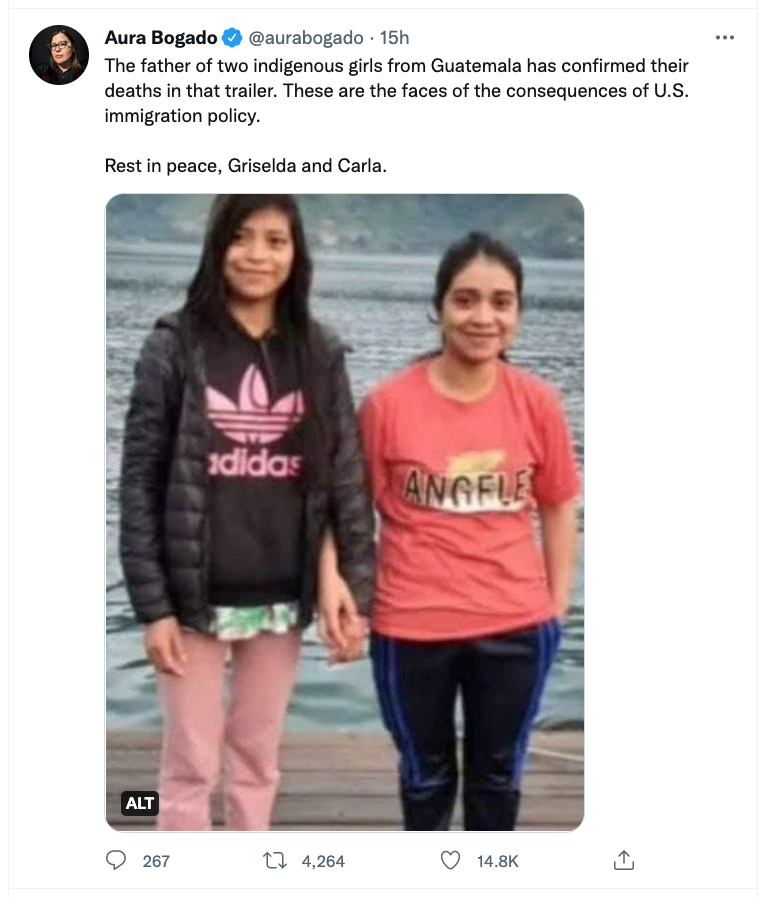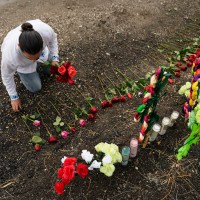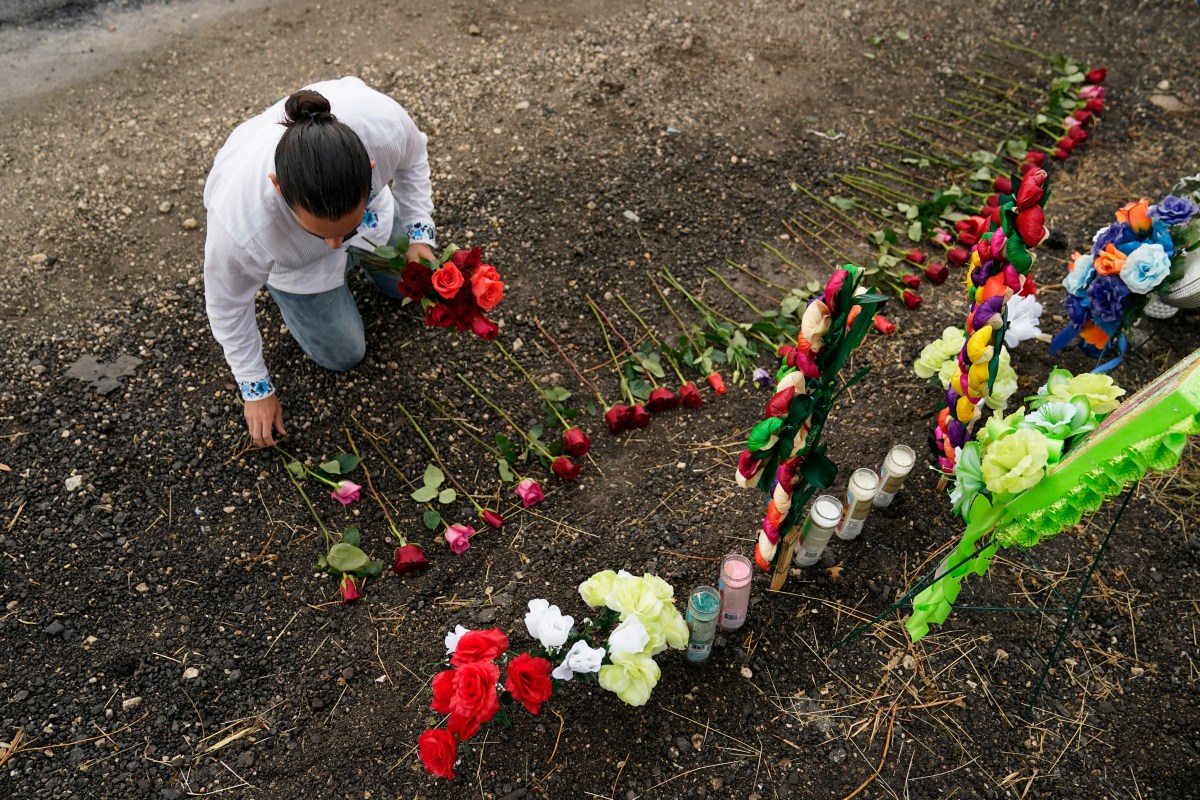Griselda and Carla. These beautiful indigenous girls, sisters from Guatemala were in the back of a tractor-trailer abandoned in San Antonio, Texas. Their bodies were found in what is reportedly the deadliest known human smuggling incident in the United States.
Fifty-one men, women, and children died without dignity because they dared to pursue a safe life.
The 51.
Violence Breeds Desperation
They’re called migrants, a general term masking individual complexity. They were also fathers and mothers; someone’s daughters and sons. How violent, poverty-stricken, or hopeless must their lives have been in Honduras or Guatemala, or Mexico to make giving up their communities for the unknown the better option? How much hardship had they faced before getting into that hot, dark, airless truck?
How desperate was Griselda and Carla’s father, for his girls to have a safer life than he could offer at home, with him?
People may say it was their own fault they died. They may say migrants should “get in line,” “wait their turn,” or “enter the right way.” We agree that systems are needed to prevent chaos. But what happens when systems are designed to fail?
Poor Legislation Breeds Desperation
Decades of US legislation, including recent examples such as Title 42 and the Migrant Protection Protocols (MPP) deny vulnerable people the right to apply for asylum at a legal port of entry, effectively pushing the border into Mexico. At least 15,000 migrants are waiting to apply for asylum in the US just in the city of Juarez. Scared families are forced to wait up to two years for their asylum cases to be heard. They wait in dangerous towns, where they are prey to traffickers, and vulnerable to violence.
US immigration lawyer Mana Yegani knows how complex the process can be. “For Mexicans, right now, U.S. immigration officials are processing cases that were filed in 1998,” Yegani said.

The evidence of desperation is splayed across the southern US border. The tragedy in San Antonio is only the most recent example.
•10 migrants drowned in El Paso irrigation canals that form part of the US-Mexico border between June 9-22.
•At least 20 Nicaraguans drowned in the Rio Grande River trying to cross into the US between March 4-May 19.
•36 bodies have been found so far this year in Brooks County, TX. Last year they found the bodies of 119 asylum seekers.
•37 asylum seekers have died, and 229 sustained injuries when trying to scale the border wall in the El Paso, TX area.
These are just some of the tragedies we know about. The remains of countless more will never be found. And these numbers represent a tiny snapshot, of a single border, in a world dotted with violence so extreme that the only choice for survival is to run for their lives.
What would you do in their shoes to defend your safety and your family? Relying on smugglers crossing along isolated routes is a last resort, not a first option.
We’re Here to End Desperation
We’re here, in Juarez, Mexico, partnering with shelters so asylum seekers have what they need to be well. So they have what they need to make the best decisions for themselves and their families, and are not pressured into the arms of human smugglers.
We’re at the border providing a unique opportunity for education–with classes in English and tech–so asylum seekers can make constructive use of their time (as they’re not legally allowed to work), which helps make the wait a little more bearable. Our tech program also provides practical job and life skills that help asylum seekers no matter where they land.
We’re here in Tapachula, at Mexico’s southern border. We’re meeting the practical needs of asylum seekers with items like food and hygiene kits before they ever reach the border of the United States. We’re in Colombia and Venezuela, working with some of the most vulnerable families to provide medical care, and food, and create jobs where they are, so they’re able to stay home and not have to make the agonizing decision to flee their countries.
We can do better than counting the bodies of those desperate for safety, who never make it.
We belong to each other.
We cannot abandon each other.


